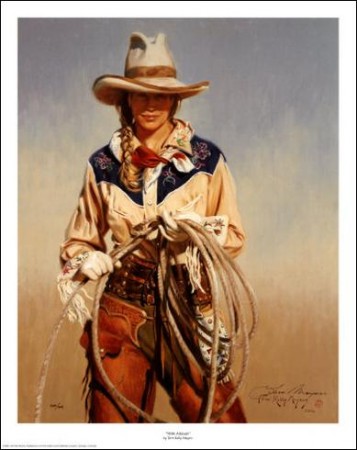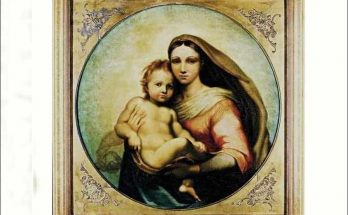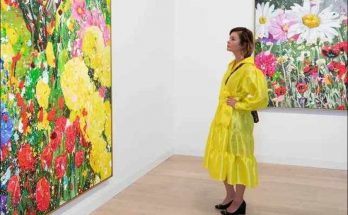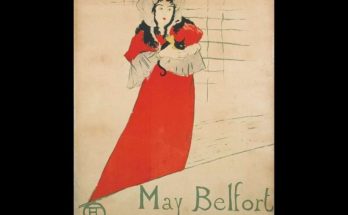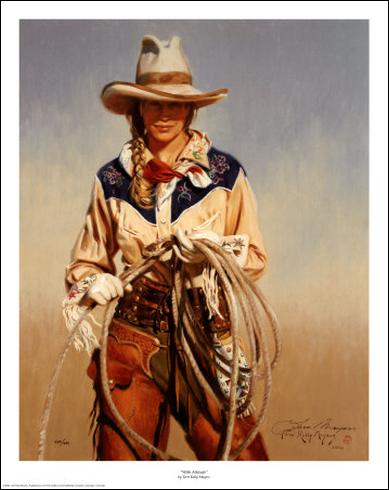Terri Kelly Moyers has never wanted to do anything in life but paint. Even as a child growing up in Calgary, Alberta, Canada, she was constantly drawing, mostly horses. She briefly studied at the Alberta College of Art and also the Mount Royal Community College, but the stylistic emphasis in these two institutions was not of the realist, nature-based school that interested Terri.
She continued working independently until she attended a month-long painting workshop taught by the artist, Robert Lougheed, at the Okanagan Game Farm in British Columbia. It was there that she began in earnest painting animals from life as well as rubbing shoulders with and getting advice from artists from all over America. One of those artists receiving instruction from Lougheed was her future husband, John Moyers, of New Mexico.
Another artist who was a valuable influence was the Canadian painter and environmentalist, Clarence Tillenius, who had been a friend and colleague of the painter, Carl Rungius.
Whether painting a portrait or a landscape or a cowgirl riding a horse, Moyer’s subjects are things that are beautiful and that move her. “I want to share what I see with other people and help them have the same pleasure I have. Each artist interprets and edits things in a different way, infusing his or her work with a different quality or emotion.”
Moyer’s favorite subject is the American cowgirl. “I enjoy painting women,” she says. “I feel women had a major role to play in the West, and maybe that hasn’t been recognized as much as it could be.”
Terri Moyers exhibits annually at the Prix de West Show at the Cowboy Hall of Fame, Oklahoma City, and at the Masters of the American West Show at the Autry Museum of Western Heritage, Los Angeles. She lives in Santa Fe, New Mexico, with her husband, artist John Moyers and their son, Josh.
She muses about her art: “I trust myself as an artist…” As she continues to grow as a painter, she says that the mechanics become more automatic. “…Then the creative stuff kicks in…. It’s all a journey.”
Views: 406
